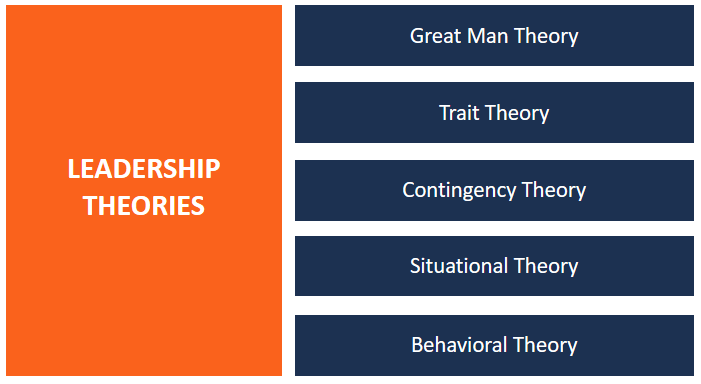Leadership Theories Assignment Help
Theories surrounding leaders and leadership continue to advance/develop as the complexity, scope of organizations shift from command and control structures to more agile structures for managing change. In today’s environment, the pace of disruptive innovation is fast tracking which is forcing organizations to rely on the latest leadership theories to keep organizations competitive in rapidly changing markets.
Task: Do you agree with the statement.
Introduction:
The current era of advance technologies and globalization has enhanced the level of competition among the organizations, persuading organizations to emphasize on creativity among their procedures to retain their position in the highly volatile markets. Whereas, how successful is the organization in attaining its targeted goals is based on the capabilities of its leadership skills in maneuvering the organization through the constantly changing demands and market challenges to achieve the desired targets.
It is not only the qualities of a leader which leads an organization to success, rather it is the leadership theory which he follows to cope up with the changing demands and the competition. Leadership theories portrays management strategies of an organization, it describes the decision-making procedures, employee’s motivation, techniques to accomplish tasks and effectiveness of communication in an organization. Conventionally, as there was not much competition, world was in developing phase and organization’s operations were limited within their regional boundaries, concept of leadership theories was least valued, individual organizations were following their own theory constantly with no change or modifications.
Constantly developing technologies and vigorous market competition has highlighted the significance of the implemented leadership theories for the management procedures and its modifications to cope up with the changing market trends and other challenges. It is the nature and scale of an organization, customers demand and government policies, which determines the type of leadership theory that needs to be followed. Moreover, as many internal and external factors influencing the organizational procedures are quite unpredictable the implemented theory must be flexible so that it can be adjusted with the faced challenges.
Unlock the secrets of impactful leadership with Assignmentstudio. Our thought-provoking essays on Leadership dissect key theories and case studies, empowering readers with actionable knowledge and inspiration for personal and professional growth.
Unravel the principles of Accounting Theory with Assignmentstudio. Our expert guidance and resources provide clarity on key concepts, facilitating deeper understanding and application in academic and professional settings.
Master the art of leadership with Assignmentstudio. Our dedicated Leadership Assignment Help service equips you with the knowledge and skills to excel in your studies and beyond. Empower your leadership aspirations with us.
Is it Leadership Traits or Leadership Theory that leads the Organizational to Success

Commonly credit of any organization’s success is received by its leader/leaders, routinely it is stated that due to the personal traits of its leader the organization achieved its goals. However, though to some extent personal leadership qualities do play a role in maneuvering the organization through the right course, but mainly it is the leadership theory which the leader selects for his organization, and entire organizational procedures are perused aligned with the implemented theory.
Whereas a leader’s traits and leadership theory are interdependent, it is the leader’s ability to analyze his organization’s structure, determine his targets, evaluate internal or external challenges, and select the most appropriate theory which will act as the mode of action for every organizational procedure. Thus, it will be the leader who decides the leadership theory to be followed, whereas, once a theory is adopted it will highlight a set of rules for every decision-making, management and operational processes.
As all organizational procedures are in accordance with the implemented theory, the success or failure of organization will be due to the theory being followed for all procedures, ultimately it would be the leader who is responsible for the selectin and implementation of his choice of theory.
Influence of Leadership Theories on Organizational Performance:
Leadership theories illustrates a leader’s approach for administering organizational procedures. A good leadership is important and the application of the theories, principles and styles is a guide to good leadership in everyday work (Uzohue, Yaya, Akintayo, 2016). Understanding the characteristics of leadership theories aids the leaders to determine the most appropriate theory for their organization which would benefit them in administering the organizational procedures according to their plans and attain the targeted goals. Commonly it is the inborn traits of a leader which influences his mindset and management skills and motivates his actions for an effective management, but not every individual in a leader’s role is born with the same leadership qualities, in such cases leadership theory aids the individual to enhance their leadership skills providing guidelines in pursuance of their management processes.
Different theories are based on different principles, the same principles describe the role and authority of managers and employees, it interprets the leader’s intention of getting the job done. As different theories are based on different principles, it illustrates different management styles of a leader and different performance procedures of managers (Ukaidi. A 2016). In some conventionally applied theories leaders are the only authority, while in some theories currently practiced managers have more power and are considered an important component for every decision-making process. It is not necessary that every adopted leadership theory will produce the desired results, sometimes if the theory is adopted inefficiently without the consideration of all the influencing factors, or is not altered in time, may result in failure or heavy losses. Hence, besides an effective leadership style, it is the efficient selection of the most suitable leadership theory to ensure seamless organizational procedures.
Leadership Theories needs Modifications
Researchers and scholars had prescribed different leadership theories during different periods, according to the business environment, range of business activities, employee’s role, and customers attitude of that time. However, significance of the leadership theories came into light, when more developments were made among business operations, markets became more competitive and customer’s choices became more demanding.

Hire Expert Writers at
Affordable Price
WhatsApp
Get Assignment Help
Conventionally, a common hierarchical management style was being followed by the organizations, management procedures were dependent on the skills and knowledge of organizational leaders (Ukaidi. A 2016). Though it has been a productive leadership style but, in some cases, it had leaded to complications. However, as the world has transitioned from the 20th century Industrial Age to the 21st Information Age, there is an increasing awareness that the skills that led to success in the 20th century are no longer sufficient to lead to success and prosperity in the 21st century (Kivunja, 2015). Thus, considering the challenges owing to continuous technological innovations, increased competition and enhanced awareness of customers, principles of traditional leadership theories requires amendments, for the organizations to cope up with the constantly developing world.
Leadership Theories for the current era:
The current management system to counter with the highly volatile challenges of the modern era has nullified the principles of the conventional leadership theories. As influence of varied external and internal factors holds significant impact on organizational procedures, involvement of all stakeholders is highly valued for efficient accomplishment of organizational tasks. To fully realize the benefits of building the leadership capacity, organizations must expand beyond the constraining focus on single, formal leaders and high potentials, whose span of influence will be limited (Scott et al, 2016). As such, principles of most of the conventional leadership theories are incapable of assuring the success of management procedures.
In the current scenario, organizations have either modified the principles of the conventional theories or have designed their own theories ensuring more productive management style in consideration of the growing challenges. To determine the efficacy of the conventional leadership theories for the current management system and the most appropriate theory that suits best for the current management system, a deeper understanding of the categorization of leadership styles would be of great significance for the professional communities (Gandolf & Stone, 2017).
Great Man Theory:
This theory was proposed by Thomas Carlyle in 1840. In his theory he claimed that leaders are born and that only those men who are endowed with heroin potentials could ever become the leaders (Khan & Nawaz, 2016). Thus, every action of a leader is influenced by his inborn traits. According to this theory only individuals with specific leadership qualities can be the leaders, though to some extent this statement stands valid, as, such leaders have the capabilities to lead their followers, are able to perceive the challenges and possess decision-making qualities. However, in view of more aggressive challenges or expanded organizational operations it might be risky to depend on the skills of a single individual.
It is not necessary that only the individual leaders with inborn traits can lead, as the same traits can be developed or learned through experience or training. Hence, individuals born without the specific qualities can also be the leader. There are many examples in which a sole leader is responsible for the success of his organization, for instance creativity, ability of perceiving things, and communication skills of Steve Job, made ‘Apple’ top brand of the current advanced world. Contrarily, ‘Netflix’ is another success story, though Reed Hasting leaded his company to the highest level but he never relied on his own skills and involved his managers for all decision-making processes.



